
How can we agree to disagree in today’s pluralistic society, one in which individuals and groups are becoming increasingly polarized by fierce convictions that are often at odds with the ideas of others? Civil Disagreement: Personal Integrity in a Pluralistic Society shows how we can cope with diversity and be appropriately open toward opponents even while staying true to our convictions. This accessible and useful guide discusses how our conversations and arguments can respect differences and maintain personal integrity and civility even while taking stances on disputed issues. The author examines an array of illustrative cases, such as debates over slavery, gay marriage, compulsory education for the Amish, and others, providing helpful insights on how to take firm stands without denigrating opponents. The author proposes an approach called “perspective pluralism” that honors the integrity of various viewpoints while avoiding the implication that all reasonable views are equally acceptable or true.
Civil Disagreement offers a concise yet comprehensive guide for students and scholars of philosophical or religious ethics, political or social philosophy, and political science, as well as general readers who are concerned about the polarization that often seems to paralyze national and international politics.
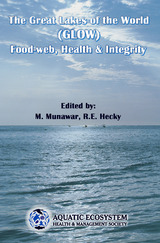
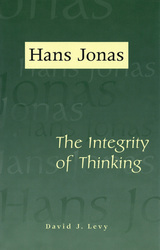
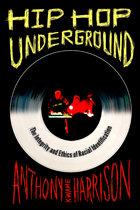
Hip Hop Underground is a vivid ethnography of the author's observations and experiences in the multiracial world of the San Francisco underground hip hop scene. While Anthony Kwame Harrison interviewed area hip hop artists for this entertaining and informative book, he also performed as the emcee "Mad Squirrel." His immersion in the subculture provides him with unique insights into this dynamic and racially diverse but close-knit community.
Hip Hop Underground examines the changing nature of race among young Americans, and examines the issues of ethnic and racial identification, interaction, and understanding. Critiquing the notion that the Bay Area underground music scene is genuinely "colorblind," Harrison focuses on the issue of race to show how various ethnic groups engage hip hop in remarkably divergent ways—as a means to both claim subcultural legitimacy and establish their racial authenticity.
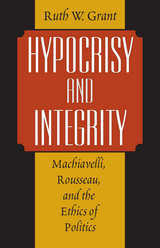

Innovating with Integrity presents a comprehensive portrait of the local heroes—front-line public servants and middle managers—who are reinventing state and local government, and it offers practical recommendations for innovating successfully.
Based on a study of more than 200 successful government innovations, this book is the first large-scale, systematic analysis of innovation in American government. Sandford Borins identifies the components of integrity that he finds in successful innovators, including the intellectual discipline to plan rigorously and to establish measurable goals; the ability to collaborate with others and accommodate criticism; and a willingness to mobilize both the private sector and the community. In addition to analyzing the common traits driving new initiatives, Borins shows the distinctive differences among six areas of innovation: information technology, organizational redesign, environmental and energy management, policing and community development, social services, and education. This trenchant analysis of what initiatives actually work and why contributes to both the practice and theory of public management. Its practical advice will be especially valuable for front-line government workers, public managers, union leaders, agency heads, politicians, and all concerned with reforming government.

"Two impressive features of this book are its clarity of purpose and the breadth of disciplinary resources to which it appeals."
---Geoffrey Brennan, Professor of Economics, Australian National University
"Facing massive evidence that people do not act generally as self-regarding payoff maximizers, economists have become increasingly interested in issues of cooperation, altruism, identity, and morality. Lanse Minkler's contribution is particularly important because of his powerful argument that the evidence of cooperation cannot be explained adequately by a more complicated preference function. A disposition for honesty is not simply a matter of preference---it is an issue of personal integrity, identity, and commitment. This has major implications. In particular we have to reconstruct the theory of the firm from first principles. No economist committed to the pursuit of truth should ignore this volume."
---Geoffrey Hodgson, Research Professor in Business Studies, University of Hertfordshire, United Kingdom, and Editor in Chief of the Journal of Institutional Economics
"This is an interesting account of the role of integrity---preference-integrity and commitment-integrity---on economic behavior. While drawing knowledge from traditional subfields of economics, it also includes insights gleaned from psychology and philosophy, showing their effects in varied areas such as political behavior, the employment relation, religion, and human rights. In this exciting volume Lanse Minkler does an excellent job of incorporating various newer concepts of fairness and integrity into economic analysis."
---Ernst Fehr, Professor and Head of the Chair of Microeconomics and Experimental Economic Research and Director of the Institute for Empirical Research in Economics, University of Zurich
Social scientists who treat humans as rational beings driven exclusively by self-interest ignore a key factor shaping human behavior: the influence of moral principles. Starting with the elementary principle "lying is wrong," economic theorist Lanse Minkler examines the ways in which a sense of morality guides real-life decision making.
Whether one feels committed to specific or general moral principles, Minkler explains, integrity demands consistently acting on that commitment. Because truthfulness is the most basic moral principle, integrity means honesty. And honesty extends beyond truth-telling. It requires good faith when entering an agreement and then standing by one's word. From this premise, Minkler explores the implications of integrity for contracts between buyers and sellers and understandings between employers and employees. He also finds a role for integrity in an individual's religious vows, an elected official's accountability to constituents, and a community's obligation to human rights.
Integrity and Agreement reintroduces morality as a factor for economists, sociologists, psychologists, and political scientists to consider in their efforts to comprehend human behavior.
Lanse Minkler is Associate Professor of Economics at the University of Connecticut.

The twelve essays in this stimulating volume, written by health care professionals and others working with the important issue of institutional ethics, focus on the world of academic health centers and provide rich, informed commentaries on significant problems integral to the character and work of those centers. Daniel Steiner demonstrates how the viability of independent research may be threatened by university liaisons with industry. Donald Frederickson traces the history of the National Institutes of Health response to the ethical challenges in clinical investigation and fetal research. Edmund Pellegrino recommends ways in which health-related institutions may translate their concern into action. Robert Coles examines the tensions between institutional and personal values in a very provocative way. Other directions are explored by essayists Roger Bulger, Stephen Toulmin, H. Tristram Engelhardt, Kim Dunn, Mitchell Rabkin, James Haughton, Lawrence Green, and the editors themselves.
Every essay in this wide-ranging collection reveals the implications and effects of institutional values. The end result is a clear picture of conflicts of values: ethical, social, economic, ethnic, cultural, and pedagogic. Integrity in Health Care Institutions points out the need for a deliberate attempt to sort out the values of institutions and, when they are fully and clearly displayed, to use priorities as a guide to satisfying the obligations of academic health centers to those who work within their walls; to the patients, students, scientists, and teachers they serve; and to society in general.
Physicians and nurses, hospital and university administrators, attorneys, sociologists, and everyone concerned about the moral interaction between institutions and individuals will want to read this book.
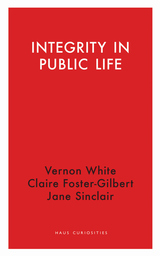

Geneticists and biochemists, particularly, have realized the special potentialities of antibodies as biologically labeled proteins that help to throw light on the process whereby genetic information carried in the chromosomes is eventually manifested in the synthesis of the proteins needed for the functioning of the organism. There are in addition many specialized applications of immunology in the other biological sciences.
F. M. Burnet describes with characteristic vividness the kinds of problems with which immunology is concerned today and the methods by which it seeks answers to them. Although he gives particular emphasis to the clonal-selection theory of immunity, of which he is the originator, he frankly says that “because it is so inherently simple, it is probably wrong.” He explains other theories of immunity as well. He discusses both nonmedical and medical applications of immunology and devotes several chapters to allergic disease and autoimmune disease. He concludes with some personal speculations into the deeper problems of biology—for instance, a somatic mutation theory of aging, in which immunology may be expected eventually to be of service.
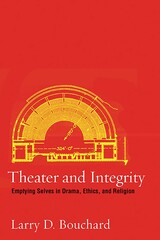
It locates ambiguities in our discourse about integrity, and it delves into conceptions of identity, morality, selfhood, and otherness. Its explorations ask if integrity is less a quality we might possess than a contingent gift that may appear, disappear, and perhaps reappear. Not only does he chart anew the ethical and religious dimensions of integrity, but he also reads closely across the history of theater, from Greek and Shakespearean drama to the likes of Seamus Heaney, T. S. Eliot, Caryl Churchill, Wole Soyinka, Tony Kushner, and Suzan-Lori Parks. His is an approach of juxtaposition and reflection, starting from the perennial observation that theater both criticizes and acknowledges dimensions of drama and theatricality in life.
READERS
Browse our collection.
PUBLISHERS
See BiblioVault's publisher services.
STUDENT SERVICES
Files for college accessibility offices.
UChicago Accessibility Resources
home | accessibility | search | about | contact us
BiblioVault ® 2001 - 2024
The University of Chicago Press









